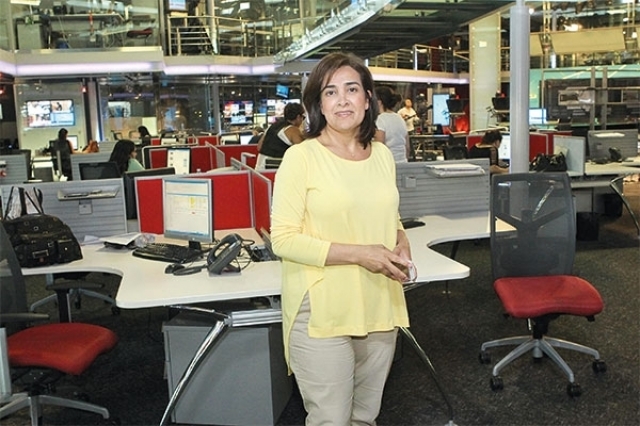Lebanon: An overwhelming victory for Hezbollah, Assad and Iran
Diana Moukalled/Arab News/May 07/2018
ديانا مقلد/فوز كاسح في الانتخابات اللبنانية لحزب الله والأسد وإيران
Lebanon experienced heavy spring rain on Sunday night. The people needed this cold shower to clean the wounds of the election campaigns and, most importantly, to wake up, contemplate and perhaps understand what the results of the voting process mean and how the consequences will play out in the future.
Everyone has been waiting to see how the past nine years, and all the security and political developments in Lebanon and the region, have affected Lebanese parties — and what the elections would be like.
Processions flaunting Hezbollah flags have been roaming Beirut since the results were announced. They gathered in the city center, where Hezbollah supporters hung their flags on the statue of Lebanon’s late Prime Minister Rafik Hariri, conveying a thousand meanings and messages.
The first blatant truth produced by the elections is that Hezbollah has become more powerful and has won overwhelming legitimacy. The party has won all the Shiite seats in Lebanon, except for one in the city of Byblos.
This mandate will enable Hezbollah to fight its regional wars and battles with strong parliamentary support, which is derived from its new-found powerful political representation, as well as its weapons.
Yes, Hezbollah fought wars in 2006 despite its rivals’ victory but, today, the party has more influence than ever on decision-making in Lebanon at local and parliamentary levels.
Prime Minister Saad Hariri was not defeated; he has won the largest Sunni parliamentary bloc. However, his Future Movement party lost more than a third of the 33 seats it won 2009. These seats are now mostly occupied by his Hezbollah opponents, and by figures closely associated with the Syrian regime — namely with Bashar Assad.
These figures had disappeared from the political scene following the withdrawal of Syrian troops from Lebanon in 2005 but, after Hezbollah and Iran advanced in Syria, they reappeared and now have seats in parliament.
It is now easy to speak of a virtual bloc of close associates and supporters of Assad, which is something we thought was long gone after 2005. What happened in Lebanon’s elections is also an extension to what has been taking place in Syria, Iraq and Yemen: The advancement of Iran-backed groups.
As long as wars are the region’s only future, Hezbollah’s weapons, backed by Iran, will remain the most powerful force. There is a great deal of truth in the rumor that says Iran now controls its fourth Arab capital.
These elections took place under a political settlement between the three major parties — Hariri’s Future Movement, Hezbollah, and the Free Patriotic Movement of the country’s most powerful Christian leader, Michel Aoun. This settlement allowed the election of Aoun as president, the adoption of a distorted election law based on proportional representation, and the launch of several economic projects.
Most importantly, the settlement neutralized the issue of Hezbollah’s weapons and its fighting outside of Lebanon — especially in Syria — and ruled it out of public debate on the pretext that this consensus has protected Lebanon from the region’s conflicts.
Among the main results of the elections is the fixed position of the two Christian parties, the Aounist party and the Lebanese Forces, who have won good blocs, according to their representation.
As for the so-called candidates for civil society: They have only won a few seats that will allow them to improve women’s representation in the parliament, raising their number to seven. This is still a weak proportion but definitely an improvement.
After the election results were announced, there are those who believe the settlement is still in place and that the loud electoral debate will now be reduced in favor of having parties work on forming a new government.
But this argument is faced with an even stronger logic: There is no political stability or balance in Lebanon under the pressure of Hezbollah and its weapons, with the group seizing every opportunity to grow and become stronger.
The problem lies in the fact that, as long as wars are the region’s only future, Hezbollah’s weapons, backed by Iran, will remain the most powerful force.
Ending wars and finding a comprehensive regional solution would put an end to Iran’s expanding influence and inevitably result in the political and military undermining of Hezbollah in Lebanon.
Without this, Lebanon will remain controlled by the current political equation.
• Diana Moukalled is a veteran journalist with extensive experience in both traditional and new media. She is also a columnist and freelance documentary producer. Twitter: @dianamoukalled























